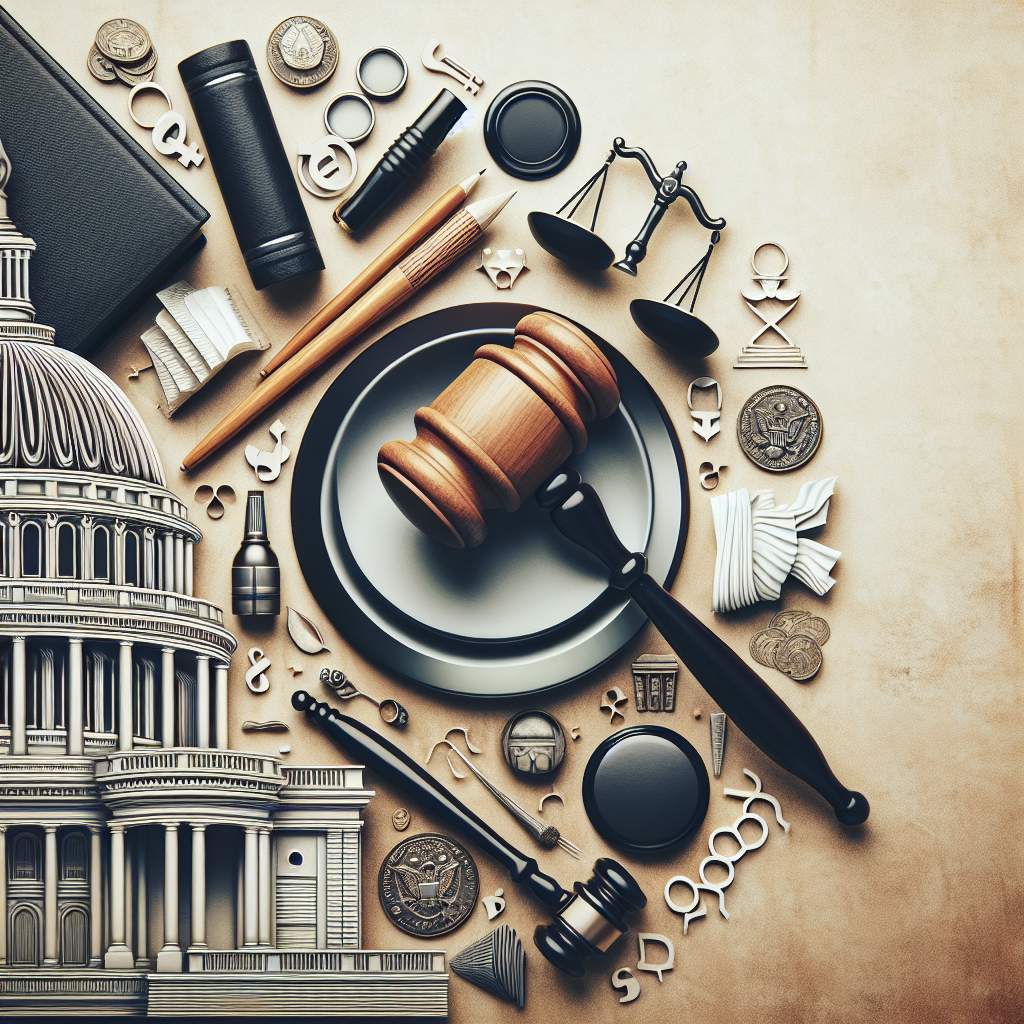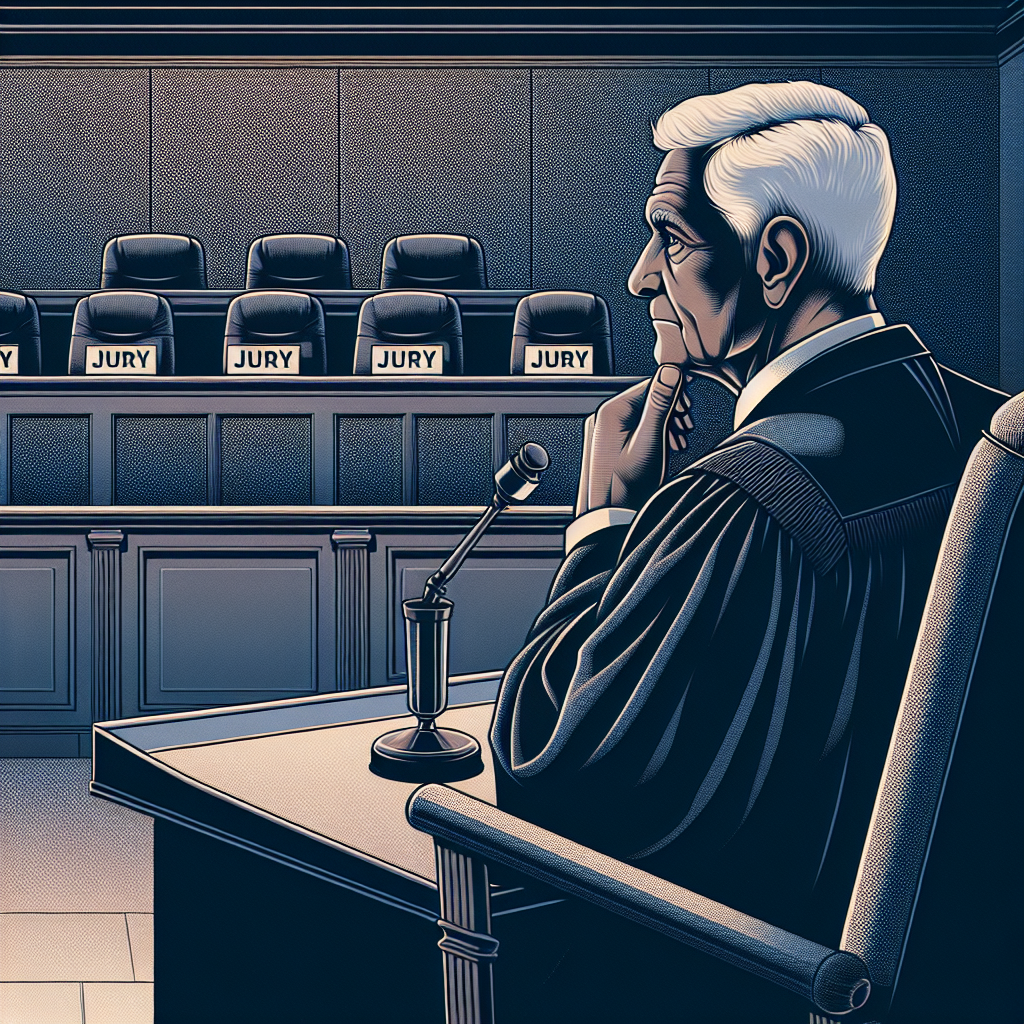The intersection of law and policy has long been a subject of debate among scholars and practitioners alike. While the legal profession has historically played a vital role in shaping American governance, it is essential to recognize that being a justice does not inherently confer expertise in policy matters. This distinction raises important questions about the implications of judicial influence on policy-making and the qualifications necessary for effective governance.
The Historical Role of Lawyers in Policy-Making
Throughout American history, lawyers have been at the forefront of policy development. The Constitutional Convention of 1787 saw a significant proportion of delegates trained in law, underscoring the profession’s longstanding influence. Even today, nearly half of the U.S. Senate comprises practicing attorneys, which reflects the persistent presence of legal professionals in legislative processes. Furthermore, lawyers dominate congressional committee staff positions and state-level legislative drafting departments, reinforcing their role as critical advisors in both legal and policy contexts.
However, the legal profession’s dominance can sometimes overshadow the contributions of non-lawyers in public discourse. When attorneys invoke legal principles, they often command attention and respect, leading many non-lawyers to defer to their expertise. This dynamic can create an environment where legal perspectives are prioritized over other valuable insights, potentially stifling diverse viewpoints in policy discussions. The justice policy expertise landscape is shaped by these interactions, highlighting the need for a more inclusive approach to policy-making.
The Judicial Branch’s Growing Influence on Policy
In recent years, the judicial branch, particularly the Supreme Court, has taken on an increasingly prominent role in shaping national policy. This phenomenon raises concerns about the qualifications of justices and judges in navigating complex policy issues. Unlike elected officials who undergo rigorous scrutiny from voters, justices are appointed, often resulting in a disconnect between judicial appointments and public accountability. The implications of this shift are profound, as decisions made by those with limited policy expertise can have far-reaching consequences.
Several factors contribute to the growing influence of the courts in policy matters. The current dysfunction within Congress has led to a perception of judicial activism as a necessary means of governance. Additionally, the actions of executive-branch officials have occasionally prompted judicial intervention, resulting in emergency lawsuits that further entrench the courts in policy decisions. As courts increasingly fill the void left by legislative inaction, the risks associated with judicial overreach become more pronounced.
Ultimately, the question arises: should justices, who may lack a comprehensive understanding of policy-making, wield such significant power in shaping societal norms and laws? This concern emphasizes the need for a reevaluation of the roles and responsibilities of justices in the broader context of governance. As the landscape of American law continues to evolve, addressing the challenges posed by judicial influence will be crucial for maintaining a balanced and effective system of governance. The impact of multidistrict litigation challenges further illustrates the complexities that arise when legal frameworks intersect with policy considerations.

The intersection of law and policy in the United States has been shaped significantly by the involvement of legal professionals across various branches of government. However, the role of justices, particularly in the Supreme Court, raises important questions about their qualifications in influencing policy. While legal expertise is crucial in interpreting laws, the lack of direct experience in policymaking can lead to challenges in effectively navigating the complex landscape of governance. This disparity is particularly evident when justices, who are primarily focused on legal principles, find themselves at the helm of significant policy decisions without the necessary background in the intricacies of policy development.
The Role of Justices in Policy Making
Justices are often seen as the ultimate arbiters of legal disputes, yet their influence extends far beyond the courtroom. Their rulings can have sweeping implications for public policy, affecting everything from healthcare to education. However, the judicial branch’s increasing involvement in policy matters raises concerns about the adequacy of their training in this domain. For instance, decisions made regarding AI legal ramifications reveal a gap in understanding the broader implications of technology on society, which is an area that requires nuanced policy considerations.
Implications of Judicial Decisions
The implications of judicial decisions can be profound and far-reaching. When justices issue rulings that effectively create policy, they operate in a realm that is traditionally the purview of elected officials. This shift can undermine the democratic process, as justices are not accountable to the electorate in the same way that legislators are. For instance, the recent discussions surrounding tort reform implications illustrate how judicial interpretations can shape legal standards that have significant policy outcomes, often without a comprehensive understanding of the legislative intent behind such reforms.
Challenges of Legal Expertise in Policy
The challenge lies in the fact that legal expertise does not necessarily equate to policy expertise. Justices may possess a profound understanding of the law, but this does not automatically translate into effective policymaking. The growing reliance on judicial decisions to address complex policy issues raises questions about the qualifications of justices to navigate these challenges. Moreover, the influence of legal professionals in shaping public discourse can stifle diverse perspectives, as non-lawyers may feel marginalized in discussions dominated by legal jargon. The legal risks associated with social media use serve as a pertinent example of how legal considerations can overshadow broader societal implications, leading to policies that may not fully reflect the needs and values of the community.
Conclusion
Ultimately, while justices play a critical role in interpreting the law, their growing influence in policymaking necessitates a reevaluation of how legal expertise is applied in the context of governance. As the lines between law and policy continue to blur, it is essential for the judiciary to engage with policymakers and experts in various fields to ensure that decisions are informed by a comprehensive understanding of the issues at hand. Without this collaboration, the potential for misaligned policies that fail to address the complexities of contemporary governance remains a significant concern.

The intersection of law and policy is a complex arena where the roles of legal professionals and policymakers often overlap. However, the assumption that justices and judges possess the requisite expertise to shape policy effectively is a misconception. While their legal training equips them to interpret laws, it does not inherently grant them the skills or knowledge necessary for comprehensive policy analysis. This distinction is crucial as the judicial branch increasingly asserts its influence over matters traditionally reserved for legislative bodies.
The Limitations of Judicial Expertise
Judges and justices are primarily trained in legal reasoning and the application of existing laws rather than in the intricacies of policy development. Their decisions often stem from legal precedents and constitutional interpretations rather than empirical research or stakeholder engagement that typically informs sound policy-making. This disconnect becomes particularly problematic when judicial rulings impact significant areas such as education, healthcare, and social justice, where nuanced understanding of policy implications is essential.
Moreover, the judicial process does not allow for the same level of public discourse or deliberation that legislative processes do. In courts, arguments are typically presented in a binary manner, where judges must choose between competing legal interpretations without the benefit of broader stakeholder input or expert testimony that might inform a more nuanced policy decision. This limitation can lead to rulings that, while legally sound, may not necessarily align with the best interests of the public or the intended outcomes of existing laws.
The Role of Legislative Bodies
In contrast, legislative bodies are designed to be more representative and responsive to the needs of the populace. Legislators often engage with constituents, hold public hearings, and consult with experts across various fields to craft laws that address societal issues effectively. This collaborative approach enables a more thorough examination of potential impacts, fostering policies that are both practical and equitable.

Furthermore, the dynamic nature of policy development requires adaptability and foresight—qualities that are best cultivated through a process that includes multiple viewpoints and rigorous debate. Unlike the judiciary, which operates within the confines of existing laws, legislative bodies can enact changes that reflect evolving societal values and needs. The ability to respond to new information and shifting public sentiment is a hallmark of effective governance that the judiciary cannot replicate.
Implications for Governance
The growing trend of judicial activism raises critical questions about the balance of power within the government. When justices step beyond their traditional role of interpreting laws to effectively create policy, it can undermine the democratic process. This judicial overreach not only sidesteps the legislative branch’s authority but also risks alienating the public from the policymaking process. As citizens witness judicial decisions that appear disconnected from the realities of everyday life, trust in the legal system may erode.
To address these concerns, it is essential for lawmakers and legal professionals to recognize the limitations inherent in judicial policymaking. Efforts should focus on reinforcing the importance of legislative processes while ensuring that the judiciary remains an impartial arbiter of the law. By fostering a clear delineation between legal interpretation and policy development, we can promote a more balanced approach to governance.
In conclusion, while justices play a vital role in upholding the rule of law, their expertise does not automatically translate into effective policy-making. The complexities of governance demand a collaborative approach that involves a diverse range of voices and perspectives. As such, it is imperative that we acknowledge the distinct roles of the judiciary and legislative bodies to ensure a functioning democracy that serves the best interests of all citizens. For instance, understanding the employment law impact can illustrate how legislative bodies engage with real-world implications, which contrasts with judicial interpretations that may lack this contextual grounding.